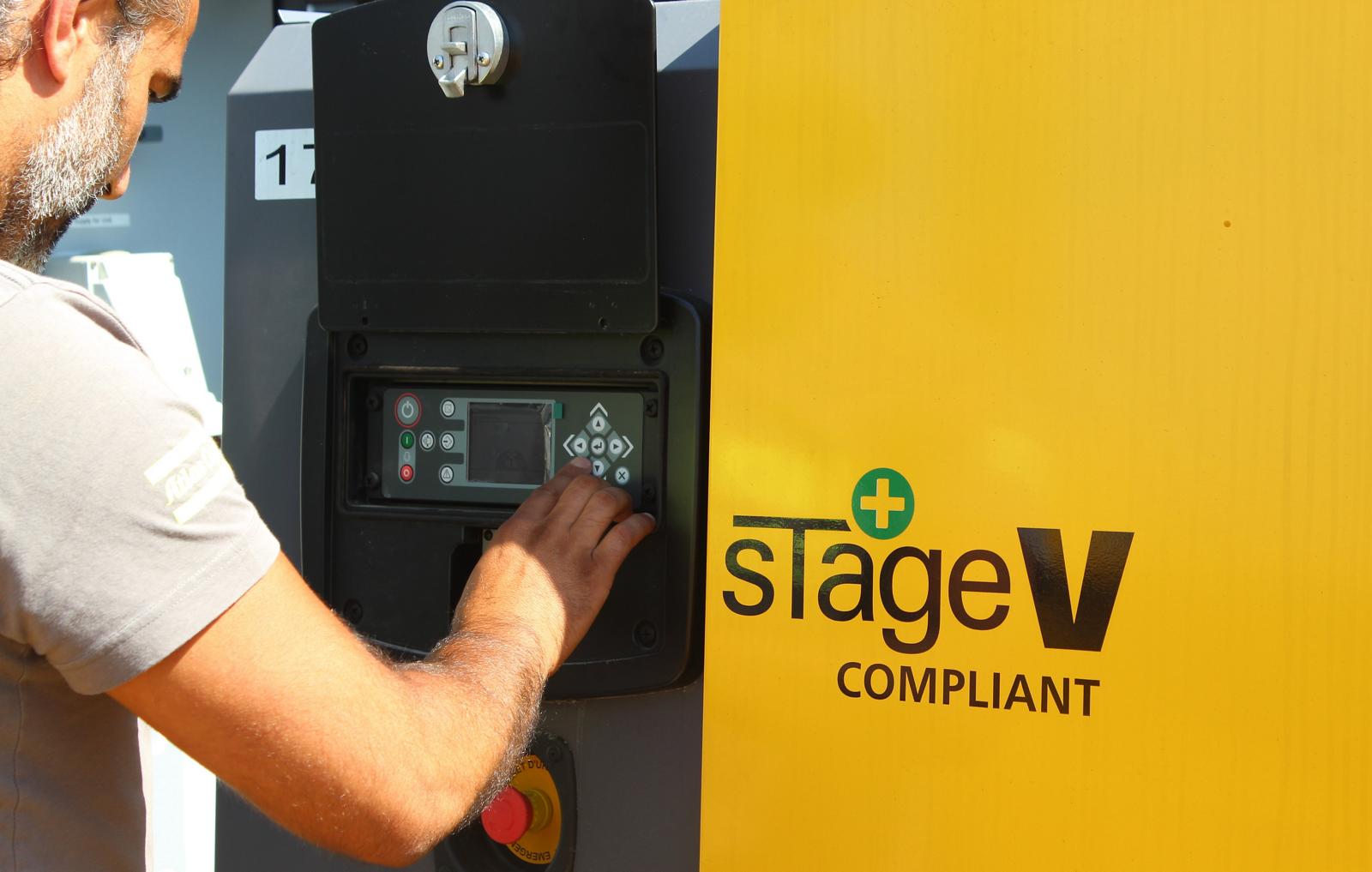Carbon-free compressed air thanks to fossil-free fuels
At Atlas Copco, we’re on a road to zero emissions. Lowering our carbon footprint is an important part of our mission. And while we’re at it, we want to help our partners achieve their sustainability goals as well.
The use of HVO is just one step in our mission, but one with big impact. Switching to HVO lowers our carbon footprint immediately, while it requires little adaptation to our equipment and infrastructure. This newest generation of fossil-free bio-diesel has plenty of benefits for us as compressor manufacturers as well as for compressor users. Read more on why we believe HVO is the fuel of the future.
What is the most sustainable mobile compressor?
When it comes to diesel consumption, mobile compressors are heavy drinkers. That is why we recommend an electric compressor whenever there’s an electricity source nearby. An electric compressor is smaller and more efficient than a diesel compressor. An electric motor just requires less energy to produce the same amount of air as a diesel compressor. On top of that, electricity is in most cases cheaper than diesel. And there are more benefits to an electric mobile compressor: it’s lighter, smaller, quieter and without the diesel exhaust fumes, suitable to run in confined spaces and close to people. But some applications require the independence of a diesel compressor. In that case, a carbon-neutral fuel, such as HVO, offers cleaner exhaust and less impact on the environment.
What is HVO?
HVO, or "hydrotreated vegetable oil", is the newest generation biodiesel, produced from recycled vegetable oils and fats, mostly waste products of the fish and meat industry. It’s 100% fossil-free, non-toxic and carbon neutral, because it’s a recycled product. HVO also burns cleaner than diesel. Simply fueling with 100% pure HVO makes your compressor run carbon-free and lowers the emission of NOx and particular matter at the same time. That’s another benefit of HVO: you can blend it with diesel at any percentage, contrary to “older” bio-fuels.
How can compressors benefit from HVO?
Fueling with HVO is an easy and fast way to lower the carbon footprint of your operations. In some regions, it is the only way to meet sustainability guidelines while still benefitting from the independence of a diesel compressor. Think of drilling jobs in remote areas or rental compressors that need to move from one location to the next.
Diesel compressors run as efficiently on HVO as on regular diesel. In the early days, HVO met with the fear of efficiency loss when used in diesel engines because a difference in density. However, we extensively tested HVO with all our engines, in various circumstances and detected no impact on performance whatsoever. Myth busted. In fact, we found that in some cases HVO outperforms diesel, for example when starting your compressor up in cold conditions. In general, HVO is less likely to “wax” in extreme temperatures than regular diesel.
Which compressors are compatible with HVO?
First of all, your compressor’s engine should be approved to operate on HVO. All our Stage V engines with electronic fuel-injection, above 19kW, are selected and tested to run on HVO without any performance loss. At our European production facility in Antwerp - Belgium, we made the switch to 100% HVO: it’s what we use to test our compressors and it’s what goes into their tanks when they leave the factory.
How do you use HVO in a mobile compressor?
Once you are sure the compressor’s engine is approved to run on HVO, you can blend it with diesel at any percentage. This is an important benefit of HVO compared to other types of bio-diesel. You can use 100% HVO one day and fill it up with diesel the next.
Do I still need DEF when using HVO?
HVO won't save the world. But on the road to zero emissions, every step matters. As governments and companies look for more sustainable ways to run their businesses, you can count on us to explore the alternatives of the future.



